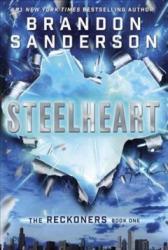
Brandon Sanderson’s book, Steelheart, is an amazing book. It follows David, a misfit obsessed with the knowledge of Epics after his father’s death. Epics are the “super humans” that have powers- and they’ve taken over his city and his life. After joining a group called the Reckoners, David and his new friends set out to take down the leader of the Epics. Along the way, he meets new people and builds relationships with his team. The end of this book is a cliff hanger that will make you need to read the sequels! Steelheart is an amazing book that teens and young adults are sure to love. Check it out!
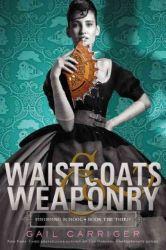
Gail Carriger's novel, Waistcoats and Weaponry, is a touching and
well balanced book that is filled with twists and turns. Gail Carriger weaves
an intricate plotline, following Sophronia Temminick in the third book of the
finishing school series. Sophronia's friend, Sidheag, must return to her
werewolf pack in the wake of a fresh conflict. Sophronia and her friends
embark on a train journey that's hauntingly mysterious, dangerous, and
exciting. Faced with new challenges along the way, they have to stick
together to make it. Secrets are unveiled and romances escalate, but what
will truly happen? This is an artfully crafted book that will keep you on the
edge of your seat! Check it out!
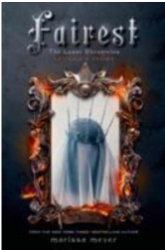
I’m not sure when it happened, but somewhere in the last decade or so, the idea of “redeemable villains” took off. So many stories had antagonists that had their heinous acts justified by some past trauma that somehow made them more human and understandable. While I appreciate flawed characters and the bad decisions that eventually led them down the dark and evil path, I don’t think it’s always necessary to make villains redeemable. That is unless it’s done well. Fairest does it well.
Right from the first pages of Fairest, the reader understands that Levana was the runt of the family. The amount of teasing and hypocrisy that formed this young girl into the evil queen she would eventually become is understandable. However, the real brilliance of this story comes in when Levana tries to solve her problems the only way she knows how: by manipulation. It’s not entirely her fault, as the royal family seemed to be built on this foundation of getting what they want by any means necessary—still, it doesn’t excuse what she did.
Even if Fairest is only a side-story for the Lunar Chronicles series, I think it’s required reading to understand the series’ main antagonist fully. If you want to read it chronologically (before Cinder ), it’s a good amount of backstory that will help bring you up to speed, even at the expense of being spoiled by some of the (albeit obvious) twists of the series. If you read it after Cress and before Winter, then it stands as a much-needed flashback before the conclusion of the series. At the very least, I’m glad that this story wasn’t crammed into the other books and was given the room to be its own story.
The best “understandable villain” I’ve ever read, I give Fairest: Levana’s Story 4.0 stars out of 5.
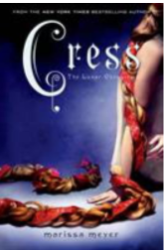
Anyone who has spent a considerable amount of time with me will know that one of my top three favorite movies is Tangled (2010). It then comes as no surprise to me that the third book in the Lunar Chronicles series that adapts the Rapunzel fairy tale into this sci-fi retelling would be my favorite of the set. It wasn't until I was reading original fairy tales to my daughter that I realized how close Cress came to representing the story it was based on instead of just relying on the familiar accouterments of the fairy tale.
While I didn't appreciate as much of the split storylines in Scarlet , I felt they improved the greater story arc of the whole series here. Cress explored much of the inner workings of the antagonist faction of Lunars that had been missing up until this point of the series. As such, I was able to gain a greater emotional attachment to the rag-tag group of rebels. It also helped that there was clear character growth in some of the minor characters like Carswell Thorne and Cress through the challenges they had to overcome.
Perhaps the best reason this was my favorite book of the Lunar Chronicles series is that it truly was building toward the climax of the series as a whole. Watching all the different pieces fall into place to set up the final book of the series was what had me hooked on this story all the way through. And sure, it still had that "teenage girl" quality to its prose, but at least it helped make the characters realistic—even if it was to adhere to the tropes of the Young Adult genre.
The sci-fi Rapunzel retelling I didn't know I needed, I give Cress 4.5 stars out of 5.
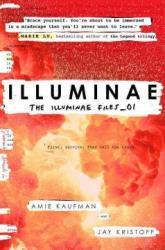
Illuminae is an enthralling mix of science fiction and thriller. Written as a case file and using many different formats (audio logs, transcribed security footage, and interviews are just a few), Illuminae has action, mystery, and romance to interest many teen readers, although its multimedia style may be jarring to some. Overall, an excellent book and the start of one of my favorite series to date.
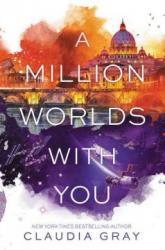
This book is my least favorite in the series. To be honest, I felt Marguerite was self-centered and only focused on Paul. I felt this way in the second book too, but not as strongly. I enjoyed the ending but, like I said Marguerite was annoying in my point of view. Overall though I thought the plot was just good and I did not expect it to end that way. I honestly feel neutral about this book. For those reading I hope you enjoy.
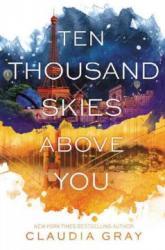
Ten Thousand Skies Above You I enjoyed immensely.
I picked this book because, well, I judge books by their covers. I mean just look at the cover, it's skillfully done! When reading the book there were some slow parts but it makes it all worth while once you get to one of the groundbreaking plot twists. I recommend this book to people who love a little bit of romance, mystery, fantasy. This swept me away to a new world, and while I can't say I can relate to Marguerite (because, well, I have traveled to other dimensions first hand) I liked the story, it has a excellent structure and build up. I like the first one a bit better but again this one was executed well too.
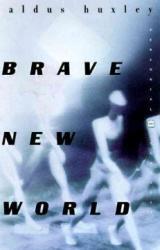
Brave New World by Aldous Huxley is about a futuristic society that revolves around conditioned people. People are made by machines that condition them emotionally and physically for a certain job. Since people are conditioned to perform certain tasks they are happy and content. This book follows Bernard who actively questions the system and is unhappy. Throughout the book, it brings up the question of whether it is better to have an orderly and perfect society or for people to have emotions and free will. Aldous Huxley does a wonderful job of building a world where individuality is erased. The book was an interesting read and would give it a 3 out of 5 stars.
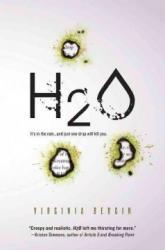
H20 by Virginia Bergin starts off with Ruby Morris, a Britain teenager whose life is going wonderful, she’s young, pretty, and just got herself a boyfriend, Casper. Caspers' parents come home in a panic and rush everybody inside. There was something in the rain that if one drop touched you, you’d die. Ruby has to find some way to survive with minimal water and food. Virginia Bergin does a wonderful job of painting a vivid picture of how it like to live with minimal water and the struggles that come with it. This book was well done and the narration style of the book is unique and entertaining. I would recommend this book with 4 out of 5 stars.
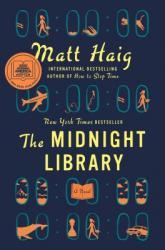
I expected this book to be decently interesting but I found that I couldn't put it down and ended up finishing it in a day. It tells the story of Nora Seed, who, after taking her own life, finds herself in the "Midnight Library," in which every book is a different life that could have been hers had she made a different decision in any given moment. She explores several of these lives, trying them out, in an attempt to find the right one that she really wants.
Nora is a relatable, three-dimensional character with an arc of development that was touching and well-done. The development of the book's themes, too, was immaculate, and they were crafted and portrayed in a way that hits the reader hard. If you're looking for a heartfelt book about self-discovery, regret, potential, and the joy of life, I would highly recommend.
Content-wise, there's the occasional swear word, and two mentions of the main character having sex, but it wasn't described and there wasn't anything graphic. I'd probably give it a 14+ age rating.
Reviewer grade: 11
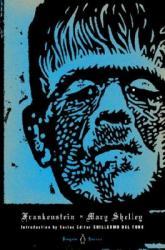
Mary Shelley’s Frankenstein, published the year she turned 20, marks the beginning of one of the 21st Century’s favorite genres - science fiction. Written as a series of letters, the story is narrated by an explorer who encountered and rescued a scientist in the far north of Europe. He recounts an adventure told by the mysterious scientist, Victor Frankenstein, who had been fascinated by mysticism and modern science since childhood. Destroyed by grief from personal loss, Frankenstein spent his adulthood constantly occupied with experiments. The experiment that brought him near death and freezing to a stranger's ship had toyed with human life as we know it.
The book follows this experiment and Frankenstein himself as they goes through grief, excitement, devastation, apathy, loneliness, and fear. Mirroring experiences Shelley had gone through in her own devastating adolescence, Frankenstein is an achingly heartfelt book to feature such an absurdly impossible plot. This combination illustrated by such a talented author makes for an excellent book, and allows readers to experience a story that has deservedly become a hallmark of modern literature.
Note: For a book written by a woman, there are shockingly few female characters, and seemingly none with importance to the plot. But readers must remember - such gifted writers do everything for a reason. I would recommend looking into the moon as a symbol for maternity, and to the lack of female characters as an element that relates to the chaotic cycle of the story. This book is often a required part of high school curriculums, and therefore includes powerful themes that rest just behind the inherently dark storyline.
Just like Godwin’s law asserts that internet conversations eventually lead to comparisons of Hitler, the longer a book series progresses, the more likely it is to include a time travel story. For the Artemis Fowl series, I was glad that it took six books to get here. Unfortunately, this plotline completely stalled the forward momentum the series had developed from the last entry, The Lost Colony (especially with introducing a potential love triangle). Sure, The Time Paradox does set up a revival for bringing back one of the series’ best antagonists, but mostly it is used to highlight the growth of the titular character.
Of course, in comparing the old Artemis Fowl with the new one, there seemed to be a regression of the one I had come to enjoy at the end of The Lost Colony. It was almost like he saw how he used to act and thought, “You know, I should try and be that way again.” Granted, he’s still basically a teenager, and he doesn’t necessarily use logic when it comes to emotional decisions—especially emotional decisions about his family. But perhaps the weakness of this story was that he had to regain all the allies he had built through the last five volumes, thus wasting time in a nearly-solo adventure.
In the end, the fact that the Artemis Fowl series finally reached its “time travel” book signals to me that there might not be many ideas left to explore. The time travel trope is so played out that most of this book was entirely predictable. Nothing drastic ever really changes in these storylines since you know that everything will return to normal by the end in a “deus ex machina” moment. Considering only two more books are left in this series, I believe my suspicion may be correct.
A standard time travel plot every book series must have, I give The Time Paradox 3.0 stars out of 5.
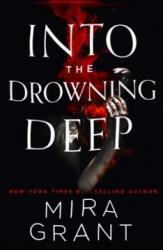
I was viewing some of the recommended books in the PPLD website and I
found this book. The title seemed suspenseful and interesting, and it drew me
in, so I decided to read this book. It's about mysteries wanting to be
discovered and uncovered. Years ago, the "Atargatis" filmed a documentary
about bringing ancient life back and discovering mythical creatures. It was
all going fine until the crew disappeared- and what's weird is how footage of
the crew getting slaughtered by mermaids got leaked out. Because of this, the
public grew suspicious and began to wonder if this was just to mock. Because
of this, Theodore Blackwell is curious and forms a new group of people to
voyage to the Mariana Trench. Each person in the crew has their own specialty
and has their own reason of wanting to explore the same area. Along the way,
they discover that a lot of the "myths" are true while finding fheir way to
safety.
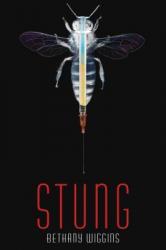
This is the first book in a series. I love this book. Fiona wakes up with her world totally altered. She has a weird tattoo on her hand. The honey bees population has collapsed and the world is separated by a wall. People turn into beasts, and she is on the wrong side of the wall. I loved how Bethany Wiggins turned this book into a mystery of who, why, when what? This book was totally unpredictable, surprises around each page! I related to this book because it is about a worldwide pandemic. Honestly I think we can all relate to each and every character in this book! I know I did.
Reviewer Grade: 8th
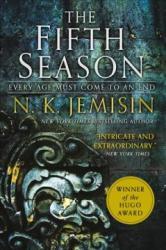
In the post-apocalyptic Stillness, where nothing is Still, N. K. Jemisin creates a cast of interconnected characters, an intriguing plot, and a fantasy world that masterfully entails factions, a magic system, and history that is weaved into the current time of the book. Jemisin goes through three different perspectives, but still maintains a sense of total engagement and interest for the reader. We follow the stories of these three, and with each learn how much of a curse each blessing can be. This series is very real and doesn't shy away from concepts that would be expected from societies in such a situation, but at the same time, is surprising in a number of ways. I really enjoyed this book; I gasped internally several times throughout, from plot twists, reveals, and realizations, and enjoyed almost every part of The Fifth Season.
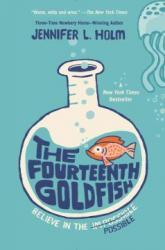
The Fourteenth Goldfish is about a girl whos grandfather finds a way to be young again. When Ellie's grandfather shows up at her doorstep as a teenager, her life gets crazy. Her grandfather found a cure to aging, but can't get into his lab due to the fact that he is unrecognizable. Ellie, her grandfather, and a couple of friends must get the T. Melvinus from the lab, before it is relocated to Malaysia.
This book was awesome. While it isn't a middle school level book, it is a great quick read. It is entertaining and was easy to read. Everyone should read this book.
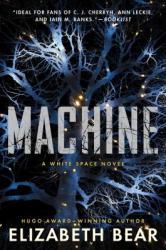
Machine is a sci-fi space opera set in the same universe as Ancestral Night, but with completely new characters and a new writing style. It revolves around a trauma doctor, LLyn, a specialist in search and rescue. Her body has a flaw, however. She deals with nerve-drilling pain, a side-effect of living on a backwater planet with no medicine, and relies heavily on an ai-driven exo that supports her and hides her pain. When an assignment brings her to the far reaches of space, she discovers a relic of the ancient Earth. A generation ship. Sent when earth was thought to have no hope of survival, this relic has drifted across space a time, with all of its crew in cryo-sleep, and its shipmind ravaged and torn by conflicting imperatives. This book is a great read for lovers of sci-fi and mystery.
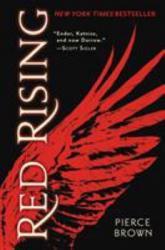
4 stars(Good, but not enough conflict)
Red rising is a sci-fi book set in the far future, where caste systems are a given and the lowest caste, red, is forced to mine Mars to make way for other, higher castes. The book follows the perspective of a red, Darrow, who lives a completely familiar yet grueling life as a helldiver. As he toils in the mines and in the life of an unfortunate red, his entire life is picked up and tossed in the garbage as his wife first dies, then he is inducted into a mysterious society known as the Sons of Ares, where the truth of his former life is revealed to him. I didn't like this book because there's little to no challenge to him in the overall story, but I also find this book strangely calming. I suggest this book to anyone looking for a story of growth, strategy, friendship, and betrayal.
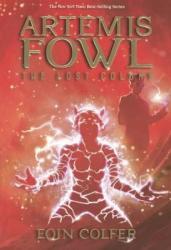
A good fantasy series knows that it needs to keep building its lore as it progresses past its first few volumes. Some might start to sag around the fifth volume, but The Lost Colony doubles down and introduces a whole new species into its universe: demons. The fact that these creatures are both tied to the fairies that have comprised the series up to now and have their own set of rules that tracks with traditional demon lore is a testament to the research that went into this series.
Of course, introducing demons into the series this late in the game isn't necessarily what makes The Lost Colony good. Rather, it's the introduction of a rival for Artemis—who also has the potential to be a rival in love against Holly Short. The last few books in the Artemis Fowl series felt like an episodic "deus ex machina" that didn't change much in the grand scheme of the main character's life. The Lost Colony recognizes it's time for Artemis to grow up and pushes a surprising ending with the potential for character growth in subsequent books.
I'm actually a little surprised that it took five books to get to this point. Most of the character development had been simmering beneath the surface for quite a few books before this one. However, introducing a new character in the form of a demon imp certainly helped keep the focus on more interesting things while also minimizing some of the more childish moments (which are still there, as this is a series for children). Overall, The Lost Colony seems to be a turning point in the Artemis Fowl series, and I look forward to where it goes from here.
Fresh worldbuilding and character development for the Artemis Fowl series, I give The Lost Colony 4.0 stars out of 5.
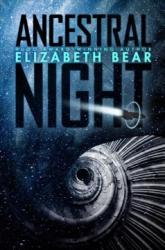
Ancestral Night is a book set in the far future, where our equivalent of supercomputers are built into people's brains and alien races have made a siblinghood with Humans. This book follows a salvage specialist that uncovers an ancient spaceship that mysteriously malfunctioned and then vented the crew into space. When she discovers who caused it, how it was caused, and why it was caused she is deeply disgusted. I enjoy this book because of the feel of Sci-fi that is real, and the mystery of the ancient races lost to time.
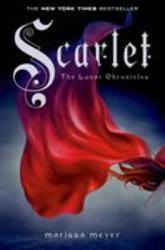
I continue to be impressed with Marissa Meyer's ability to weave a compelling narrative based on common fairy tale themes but set in a sci-fi framework. A continuation of the story that started in Cinder , Scarlet felt a little distracted as it added in elements from "Little Red Riding Hood" and split its time between the new characters—mainly Scarlet and Thorne—and advancing the plot of Cinder to its next logical step. As long as you realize this series centers around Cinder and her rise to the Lunar throne, this book should provide some great entertainment.
Perhaps what I enjoyed most about this book was how it seamlessly integrated with the lore already established in the previous volume while also being true to its source. Nothing strays too far from the themes of wolves/werewolves, so it's a bit of an obvious connection to make in a series that's titled the Lunar Chronicles. Still, the thought put into constructing a plausible plot from the pieces of a short fairy tale is something that must be applauded. Even so, Scarlet does have some weaknesses that have carried over from its predecessor.
The charm of the characters in this series comes from how realistic they seem. Granted, most of the characters are teenage girls, so there are many quirks that are amusing at first but become irritating over time. In particular, Scarlet seems quite stupid. Her logic is clearly flawed, and it's obvious to the reader that she's going about things all wrong for far too long until she finally "gets it." And—of course—she's going to be attracted to the "Wolf." The other new character, Thorne, seemed underdeveloped as well, but I'm sure we'll see more of him soon.
A somewhat distracted but still excellent follow-up to Cinder, I give Scarlet 3.5 stars out of 5.
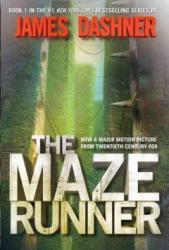
The young adult book genre for the most part fells boring and stale to me. However, there was one book that I found to be great, and a real page turner, it was called Maze Runner. The book took me two days to finish, because it was such a page turner. The characters are great, the mystery is intriguing, and the drama is fun to read about. This book is one of my favorites and is a must read for everyone.
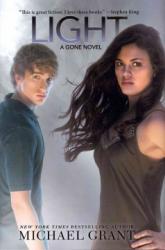
This was an amazing ending for the Gone series and although I am sad that it has come to an end the author was able to end the series in a way that satisfied all of its viewers without fan servicing.
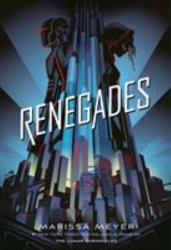
Renegades is an action-packed, intriguing, forbidden romance-filled story. Unlike classic "hero vs. villain" stories, this story shows the ups and downs of both sides, and makes you question who the real villains are and what makes someone a real hero. The dual main character style from both Nova and Adrian's point of view adds a real depth and feeling to the book. It was easy to tell each point of view, and they collided and cooperated with each other, showing the inner workings and feelings of both characters and what they were faced with. The duality not only allows you to get to know each character better, but also lets you see the world from both different points of view, the Renegades, and the Anarchists. Nova and Adrian were both likable and understandable. From Nova's want for vengeance, and Adrian's want for justice, you get to see and experience the choices they make, the sacrifices required, and the unknowing relationship and connection between the two as they pursue their desires. Paired with the amazing setting of a futuristic utopia yet broken society, the flow and purpose of the story is just fantastic.
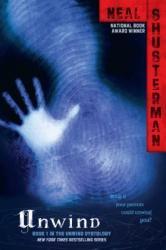
Okay let's get the bad stuff out of the way. To start things off, many times throughout the book it feels a bit slow. I find myself trying to read a part of the book, hoping that something exhilarating will happen, but it turns out to be slow. Following that, sometimes things felt the opposite and felt rushed. At some points of the book, I feel like some plot twists/reveals were forced into happening and being revealed. I would think to myself that it's a bit cliche. But otherwise, there's nothing else that really bothers me.
Now the neutral/mixed emotions. Sometimes the transitions are very good; making the audience know another character's POV at the time of an event. Other times... well it's a little dull. For example, one scene you'd be at an action paced-fight, the other, you'd be having a conversation. But yeah this is the only neutral/mixed emotion factor.
Now the amazing stuff. The characters are absolutely amazing, the plot is amazing, and the action-paced scenes are amazing. I cannot use words to describe how much I love Neal Shusterman's unique way of writing. The way that the characters interact with the world around them, and overcome the problems and struggles put before them really draws you in, and they dynamic between the characters themselves is also amazing. Really love it!
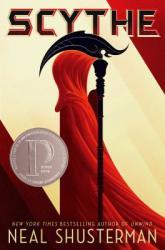
Scythe is the first book of the Arc of a Scythe trilogy, that follows dual main characters Rowan and Citra. Set in the far-future, natural death has been practically eliminated thanks to technology and the "Thunderhead," and only those dubbed "scythes," which are basically reapers, can truly kill someone. This book set up the perfect utopian world, whilst being filled with joy and sorrow. Throughout the book you learn about the interactions and struggles of characters that aren't so different from today's people. The flow was fantastic, always making you want to know more and making the jump between character perspectives really work. The inclusion of 'scythe journals' in between the chapters adds a personable feature and gives an insight into the lives of characters that while they may not be specific to the story, and important to the context and groundwork. Every character that was introduced felt so human and real and makes you wonder what it would be to live in their world. The two main characters felt like they were connected in a deep and important way, yet they also felt so different and so alive that the dual-lead works. From the world to the characters, this book will have you wanting to know more, and wondering about life in an era without true death.
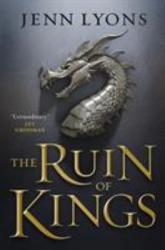
The Ruin of Kings by Jenn Lyons is an amazingly crafted fantasy story following a young boy named Kihrin as he discovers the secrets of a world filled with gods, demons, dragons, and mages. However, Kihrin finds that his past will come back to haunt him, and he must survive with the help of anyone who will accept him. Including, but not limited to, gods, dragons, and deposed kings. The plot twists and amazing scenery make this book amazing. I enjoyed reading it very much, and would recommend the book to anyone who enjoys fantasy novels.
Reviewer Grade: 11
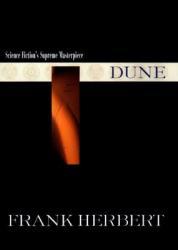
Frank Herbert’s Dune is one of the most iconic science fiction novels of all time. Featuring an imaginative universe filled with strange aliens and even stranger planets, Dune provides a sense of adventure and wonder to every reader. It follows the story of a young noble as the Emperor gives his family control over the planet responsible for generating the most valuable resource in the universe, spice. But this advantageous appointment is not without its risk, and soon rival houses come to try and take control of the planet. I would recommend this book to anyone who enjoys any kind of science fiction, and it is a must read for every Star Trek and Star Wars nerd out there.
Reviewer Grade: 11
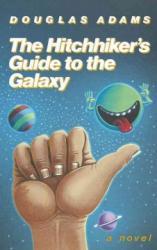
I'll be honest. The main reason I picked up this book was because I kept hearing people talk about how 42 is the meaning of life and I had no idea what they meant. I also read it because I'm generally a big fan of science fiction, but it was mostly to understand the 42 reference. Despite my less-than-admirable intentions, though, I massively enjoyed it. The author is very creative and the writing itself is well-crafted, but, at the same time, the book doesn't take itself too seriously. It's hilarious. From the "42 is the meaning of life" idea that everyone talks about to the name "Slartibartfast," this book made me laugh out loud several times, which isn'ta common occurrence when I'm reading. I also read it as an audiobook, and Stephen Fry as the narrator makes it that much better. My only complaint about it is that the ending was a bit abrupt, but that's what sequels are for, so all in all, I would highly recommend.
Review grade: 10
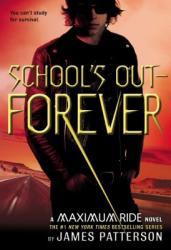
After the amazing complexity of The Angel Experiment, James Patterson’s School’s Out-Forever, is a slightly less-complex sequel in which the teens must navigate the muddy waters of public school while trying to stay out of the grasp of their previous captors. It features one large new addition to the story, an imposter among the group. Who could this imposter be? What is their purpose? There is only one way to find out, read the book. I enjoyed this book less than The Angel Experiment, primarily because it can get confusing at times in its complexity, but I would still recommend it to anyone who enjoyed the first book.
Grade: 11